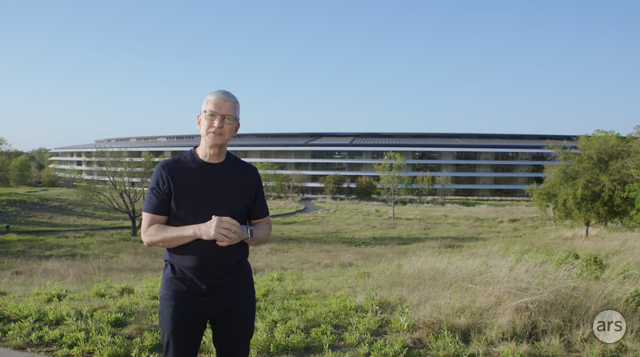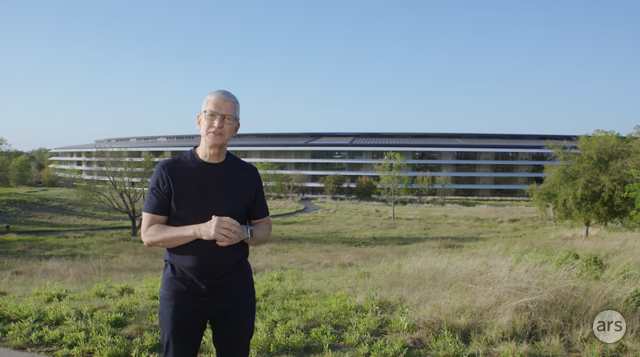
Apple CEO Tim Cook announcing new products in the company’s April 20, 2021, livestream.
Today, The Information published a lengthy report detailing Apple CEO Tim Cook’s efforts to establish strong relationships between Apple and Chinese government officials and agencies.
Citing both interviews and direct access to internal Apple documents about repeated visits by Cook to China in the mid-2010s, the report describes a $275 billion deal whereby Apple committed to investing heavily in technology infrastructure and training in the country.
The nonbinding, five-year deal was signed by Cook during a 2016 visit, and it was made partially to mitigate or prevent regulatory action by the Chinese government that would have had significant negative effects on Apple’s operations and business in the country.
The Information details the nature of the Chinese government priorities included in the 1,250-word deal:
They included a pledge to help Chinese manufacturers develop “the most advanced manufacturing technologies” and “support the training of high-quality Chinese talents.”
In addition, Apple promised to use more components from Chinese suppliers in its devices, sign deals with Chinese software firms, collaborate on technology with Chinese universities and directly invest in Chinese tech companies… Apple promised to invest “many billions of dollars more” than what the company was already spending annually in China. Some of that money would go toward building new retail stores, research and development centers and renewable energy projects, the agreement said.
To date, Apple has mostly honored its part of the agreement, and the article details exceptional cases when Apple has benefited from the strong relationship in successfully circumventing limitations that would normally be imposed on foreign companies.
For example, encryption keys for iCloud user data for the region are controlled by Apple, despite the government’s efforts to encourage, pressure, or force foreign companies to hand over responsibility for that data to Chinese companies. On the other hand, a commitment by Apple to adhere to Chinese government regulations and policies was part of the deal, and Apple has often complied with requests to delist apps and content that run counter to the state’s priorities and goals.
China is one of the world’s largest and fastest-growing consumer markets, but its economy and government operate by very different rules and values than what businesses face in capitalist Western democracies. As such, deals like this are not uncommon for foreign companies operating in China, though they are not always so secretive.
Chinese officials have historically sought to emphasize the health of local and national businesses and have at times imposed or announced intentions to impose regulations that dramatically hamper foreign companies out of a desire to ensure success for Chinese businesses. Foreign corporations must often make a strong case that their success will be shared with local companies to avoid these outcomes.
Apple has performed better in China than most comparable American tech companies, and the report makes the case that this is in large part thanks to Cook’s lobbying, dealmaking, and relationship building. In fact, Cook’s strength in this area has been so crucial to Apple’s global success that some members of Apple’s leadership worry about the company’s future success should Cook step down in the future.
In other words, while former Apple CEO Steve Jobs may be best-known for effectively trailblazing and popularizing new product categories, Cook may ultimately be remembered most for turning Apple into a more advanced, efficient, and profitable global business than ever before. If so, it would be thanks to this kind of dealmaking, as well as a strong mastery of supply line logistics. (Cook was also the chief architect of Apple’s current product supply chain, which is heavily rooted in China.)
The Information notes that China represents 19 percent of Apple’s total sales, up four points from just a year earlier. It also cites data by Counterpoint Research that states Apple has recently become China’s largest smartphone brand.
